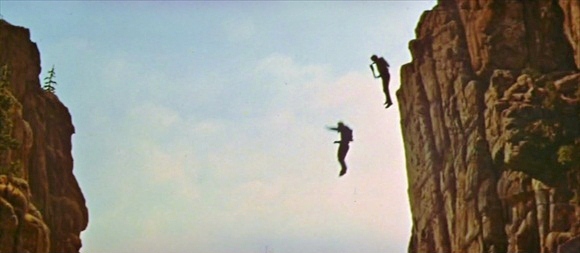He is currently in the midst of directing the film Undiscovered Gyrl. I took the opportunity of an enforced break to ask him some questions.
• Where were you born, and where did you grow up?
I was born in Ithaca, New York, when my father was getting his PhD in Marine Biology at Cornell University. We moved around a lot as he advanced in his career. I spent most of my childhood in Cleveland Heights, Ohio, and Evanston, Illinois.
• What kind of a family did you grow up with?
My father was a brilliant, disturbed alcoholic scientist and creative writer. My mother is a psychotherapist, with all the good and bad that that implies. I have one brother and one sister. I would describe our home life as loud, brainy, and intensely dysfunctional.
• Where did you go to school?
A large public high school in Evanston, Illinois, and then I stayed at home and attended Northwestern University, where my father taught. I majored in the Oral Interpretation of Literature. I acted in plays and wrote them as well. Later, I did a one-year fellowship in playwriting at the Juilliard School.
• When did you first decide you wanted to write?
I was always writing throughout high school and college, but I did not commit it to as a profession until a few months out of college. I was twenty, living in New York, and performing in a small production of a George Bernard Shaw one-act play. Often there were just a few people in the audience. I thought, "This is a dog's life. I'm going to commit to playwriting." Writing had always come easier to me than acting.
• Who has had the most influence on you as a writer?
Nathanael West, Anton Chekhov, F. Scott Fitzgerald, and Charles Dickens.
• Starting with the first film you wrote and directed, Red Meat (1997), you have developed a reputation as a creator of positive roles for women. How do you view a film such as Thelma and Louise?
Thelma and Louise (1991) opened right around the time that Silence of the Lambs (1991) came out. Everyone was hailing the former as a seminal feminist statement and condemning the latter as a movie that showed a woman being victimized. I thought it was just the opposite. In my eyes, Thelma and Louise are cowards running from the law and accountability. In fact, they would rather die than defend their actions in court. People kept comparing them to Butch Cassidy and The Sundance Kid, which I thought was silly. Those guys went out fighting, guns blazing, against insurmountable odds. They knew if they were captured, they were dead anyway. They didn't jump off a cliff to certain death just to avoid a self-defense plea.
 |
| Butch Cassidy and the Sundance Kid jump off a cliff to escape the Superposse |
• We’ve talked about your experiences with Autumn in New York. What did you find most frustrating about seeing your screenplay mangled like that?
Somehow my script managed to stay pretty much intact until less than a week before shooting, when Richard Gere ordered a rewrite. I think everyone involved with the film, including Richard himself, now acknowledges that this was a mistake. The experience, although painful, was a gift, because it reminded me that I would never be able to experience the pride of authorship if all I did was write movies. It led me back to fiction. I have published four novels, with a fifth coming out next year.
• You’ve just finished the directing one of your novels, Undiscovered Gyrl, into a film. How did that go? Did you bring any lessons back from the shoot?
My movie shares its lead actress, the brilliant and beautiful Britt Robertson, with a Vince Vaughn movie that was hit by Hurricane Sandy. The disruption of their schedule disrupted ours. When Undiscovered Gyrl finishes shooting in mid- January, we will have shot in four different months!
What did I learn? Never give up!
• What was the best advice you were given at the start of your career?
If you want to stay sane as a screenwriter, make sure you have some other creative outlet.
• What are three things you wish someone had told you about writing when you were starting out?
1. The worlds of indie script writing and studio screenwriting are entirely different.
2. Don't use your writing as therapy. Write about your personal dramas only after they are over.
3. Write every single day. Soon you will be addicted. It won't take discipline. It will be a compulsion.
 • What one filmmaking advice book would you recommend to a young
wannabe screenwriter in Adelaide?
• What one filmmaking advice book would you recommend to a young
wannabe screenwriter in Adelaide? Even though it is thirty years old, Adventures in the Screen Trade
And here is the advice I would give that young writer:
Read great literature, watch great movies, lead a brave, rich life, and eventually move to Los Angeles.
• What are your ten favorite movies of all time?
The list of 10 films I think are the greatest bear no resemblance to my favorites, i.e., these are the ones I enjoy the most:
Harold and Maude (1971)
The Best Years of Our Lives (1946)
Annie Hall (1977)
Carnal Knowledge (1971)
Chinatown (1974)
Shane (1953)
Election (1999)
Shadow of a Doubt (1943)
The Shop Around the Corner (1940)
Holiday Affair (1949)
Here's the preview for Gone, the most recent of Allison Burnett's screenplays to be released as a movie.
First posted: 3 January 2013




No comments:
Post a Comment